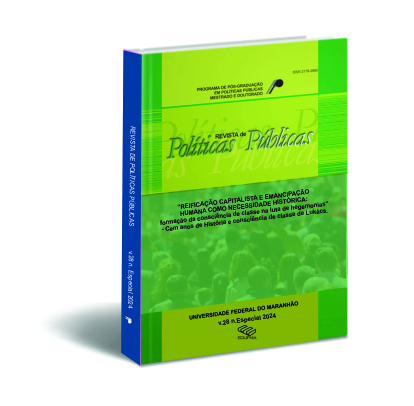MORAL HARASSMENT, LABOR VIOLENCE IN THE 21ST CENTURY AND THE NEW CONFIGURATIONS OF WORK: union action and workers' health
DOI:
https://doi.org/10.18764/2178-2865v28nEp.2024.29Keywords:
Bullying, workplace violence, capitalism, work, occupational healthAbstract
This article aims to present and problematize moral harassment and labor violence in labor relations in Brazil in the twentyfirst century, a society marked by ultra-neoliberal capitalism, which has deepened the precariousness of working conditions and relations, as well as violence in workspaces. It is anchored in the Marxist and Marxian critical social theory, which
enables us to apprehend social phenomena from a perspective of complexity, inserted in a historical and social totality, so that we can identify the mediations and determinations present in the phenomena, linking them to the universal in order to carry out the critique and overcome capitalist reifications. Thus, the approach adopted intends to go beyond the phenomenal, implying, in addition to the victim and the harasser, the workplaces and work environments, bourgeois sociability and the hegemonic societal project. Moral harassment and other forms of violence at work are a face of modern society, they have serious consequences for the health and lives of workers, they affect their families, the work environment, with costs for society in general, as shown by some data resulting from research with rural workers and public higher education.
Downloads
Downloads
Published
How to Cite
Issue
Section
License

This work is licensed under a Creative Commons Attribution-NonCommercial-NoDerivatives 4.0 International License.
UNIVERSIDADE FEDERAL DO MARANHÃO
PROGRAMA DE PÓS-GRADUAÇÃO EM POLÍTICAS PÚBLICAS
REVISTA DE POLÍTICAS PÚBLICAS
Termo de Transferência de Direitos Autorais
Como condição para a submissão, os autores devem declarar a autoria do trabalho e concordar com o Termo de Cessão de Direitos Autorais, marcando a caixa de seleção após a leitura das cláusulas)
- Declaro que participei da elaboração do trabalho referido, em parte ou no todo; que não omiti qualquer ligação ou acordo de financiamento entre os autores e instituições ou empresas que possam ter interesses na publicação desse trabalho;
- Declaro tratar-se de texto original, isento de compilação, em parte ou na íntegra, de minha autoria ou de outro (os) autor (es);
- Declaro que o texto não foi enviado a outra revista (impressa ou eletrônica) e não o será enquanto a possibilidade de sua publicação esteja sendo considerada pela RPP;
- Declaro que transfiro os direitos autorais do trabalho especificado para a RPP, comprometendo-me a não reproduzir o texto, total ou parcialmente, em qualquer meio de divulgação, impresso ou eletrônico, sem prévia autorização dessa Revista.
- Declaro que tenho conhecimento que a cessão do texto à RPP é gratuita e, portanto, não haverá qualquer tipo de remuneração pela sua utilização.

Este obra está licenciado com uma Licença Creative Commons Atribuição-NãoComercial-SemDerivações 4.0 Internacional.






